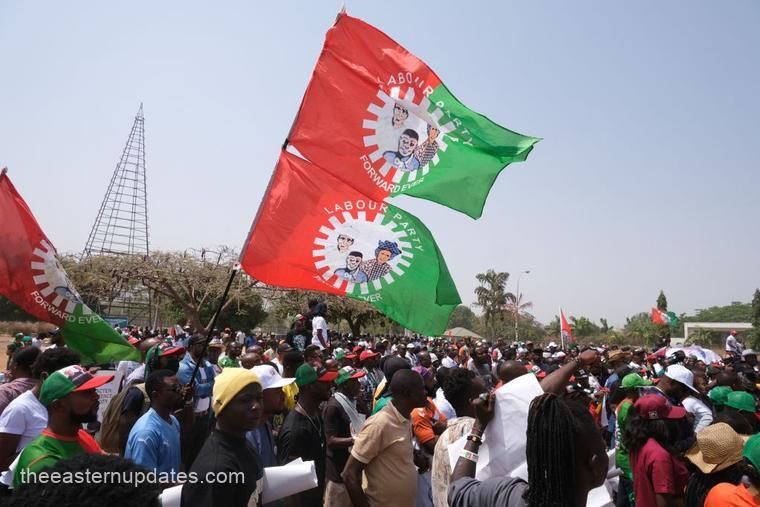The Labour Party has said that the internal revolt by All Progressives Congress (APC) members in the North East is a case of political karma for President Bola Tinubu, who recently mocked opposition parties over their internal crises.
In a statement on Tuesday, the party’s Acting National Chairman, Senator Esther Nenadi Usman, described the APC crisis as ironic and a consequence of undemocratic tendencies.
Usman recalled that President Tinubu had earlier expressed satisfaction over the disarray within opposition political parties, declaring that he was “happy” about their internal conflicts.
“It is an irony of history that just days after such an undemocratic and unguarded remark, his own party, the APC, is engulfed in public crisis in the North East,” she said.
According to her, the APC’s attempt to enforce a “one-man agenda” without due process or respect—even towards the Vice President—has exposed the rot within the ruling party’s politics.
“The people of the North East rejected the charade. The fallout is now visible to all: smuggled party officials, a fractured house, and a nation watching,” she stated. “This is not poetic justice. It is political karma. What President Tinubu wished for others has turned to plague his own political household.”
Usman said the effort to sideline Vice President Kashim Shettima in his own region reflects not only internal decay but also sends a dangerous message—that loyalty, dignity, and truth are expendable in the corridors of power.
She urged President Tinubu to reflect, rather than celebrate, in moments of political turmoil.
“Democracy thrives not when power is consolidated, but when it is contested with responsibility and honour,” she said. “This moment should serve as a mirror for the president—a time for introspection, not petty triumphalism. Nigeria deserves better than the politics of sabotage and suppression.”
Usman also criticized the president’s earlier comments, describing them as unbecoming of a democratic leader and indicative of a “worrying disdain” for the foundational principles of democratic governance.
“A president who celebrates the weakening of opposition is, by extension, celebrating the weakening of democracy itself,” she added.
Calling on Nigerians to see beyond political noise, she urged citizens to choose leadership rooted in humility, truth, and national interest.
“We remain steadfast in our commitment to building a nation where the opposition is not persecuted, but protected as a vital pillar of our democratic health,” Usman concluded.















